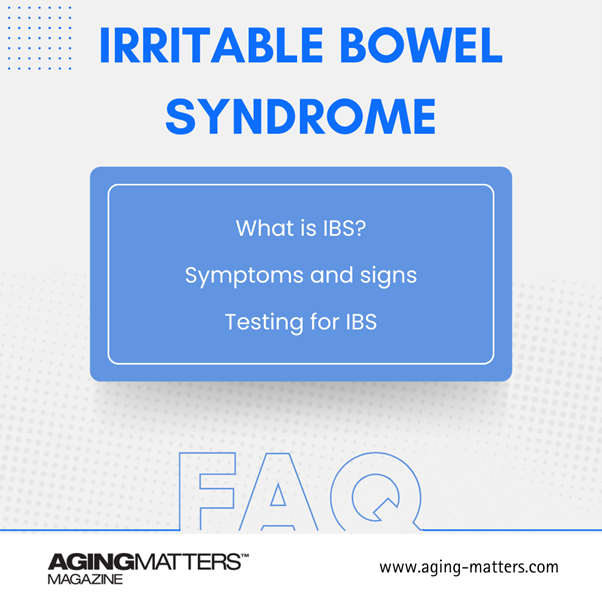
Ageing and Becoming Intolerant
September 19th, 2023In this article, we aren’t talking about the intolerance of naughty children or dodgy politicians – it’s about the worrying, widespread, fast-growing development of allergies in ageing humans. The population is getting older, and allergic manifestations are increasing. It is estimated that 25% of humans have life-threatening or irritating allergies.
As we age, becoming intolerant to something can be a real pain in the gut, an itchy rash on the skin or a challenge for the respiratory system
Recently, we’ve seen dramatic environmental changes, bizarre weather patterns, pollution and a deadly virus – no wonder our immune systems are working harder than ever. The healthcare system is overstretched and understaffed, and with the increase in allergies and the impact on the ageing body, everything is being stretched to its limits. There have been many studies on child allergies but with the new emerging health issues around the elderly and increased allergic reactions, more investigations need to be done into adult immediate hypersensitivity that can lead to disease. Dr. Charles Frey, an allergist from OSF HealthCare in the US explains, “Probably about 80% of adults with inhalant allergies carry them from childhood but adults can develop allergies at any age. I have seen patients develop new seasonal or perennial allergies in their 50s or 60s.”
Our immune systems become remodelled
In an ideal world, we would enter adulthood, leave our childhood allergies behind us and look forward to a sneeze-free future. But no, as we age, our bodies change due to genetics, lifestyle, and the environment – unpredictable and uncomfortable allergies can develop at any time. An allergic reaction can go as quickly as it came or be an unsightly inconvenience for years.
In our lifetime, our immune system becomes remodelled. There are changes in the immune function (immunosenescence), and the molecular, cellular and systemic levels decrease their ability to respond to challenges. We have increased susceptibility to illness, intolerance and disease. The aged digestive system is more likely to develop intolerances and, 24.8% of people in nursing homes (77yrs+) in the US have food intolerance. The most common allergies in the elderly are adverse drug reactions and intolerance of some fruits, vegetables, nuts, fish and shellfish.
Allergies
An allergy is a response from the body’s immune system. Changes in protein structures and cross-reactivity in human cells can produce histamines that play havoc on our health. The progression of an allergic reaction is called an ‘atopic march’. Most allergies are manageable, sometimes curable, but some can result in anaphylaxis and worse case, death.
The most common allergies are to allergens from trees and pollen (hay fever), house dust mites and foods such as peanuts, milk, and eggs (food allergy) – animal fur (animal dander) from pets, insect stings from bees and wasps and medication. If you’ve suddenly got a sore throat and hoarse voice after eating an apple or cherry, you could have developed oral allergy syndrome. Much like the pollen in the grass, an apple contains birch pollen.
It’s unkind of Mother Nature or whoever is to blame for having the luxury of eating a crisp apple or juicy cherry all of a sudden taken away from us – that’s the unpredictability of allergies.
- Trees and pollen https://www.asthmaandlung.org.uk/pollen
- House dust mites https://www.mayoclinic.org/diseases-conditions/dust-mites
- Peanuts https://www.mayoclinic.org/diseases-conditions/peanut-allergy
- Milk https://www.mayoclinic.org/diseases-conditions/milk-allergy
- Eggs https://www.allergyuk.org/resources/egg-allergy-factsheet
- Animal fur https://www.mayoclinic.org/diseases-conditions/pet-allergy
- Insect stings https://www.nhs.uk/conditions/insect-bites-and-stings
- Medication https://www.ncbi.nlm.nih.gov/pmc/articles
- Oral allergy syndrome https://my.clevelandclinic.org/health/diseases
Other well-known causes of an allergic reaction are:
- Dairy products, gluten, wheat, lactose, gluten, different types of fruit and vegetables
- Weeds, grasses, trees, poisonous plants and foreign plant antigens
- Animal/insect venom, pollution, metals, rubber and plastics
- The sun, heat, smoke and mould
- Sensitivity to additives
- Alcohol, medication and drugs
- Cosmetics and toiletries
- Jewellery and fabrics
Other common symptoms associated with allergies are:
- Nasal passage problems, sneezing, sniffles, runny nose, sinus infections and congestion
- Swollen, sore or itchy throat, hoarse voice, loss of voice, coughing, loss of smell, earache, choking and breathlessness
- Swollen face, lips, eyes and cheeks. Watering itchy, red, sore and puffy eyes. Lumps, bumps and spots
- General pain, general swelling, hives, rashes, tingles, stinging sensation, peeling skin and skin discolouration
- Diarrhea, nausea, vomiting, bloating, abdominal pains, sweating and spasms
- Tightness in the chest, palpitations, a temperature, shaking, seizures, tiredness, exhaustion, rapid pulse, drop in blood pressure, dizziness and fainting
It’s a minefield!
With all that in mind, no wonder it’s a minefield when it comes to allergic reactions. The types or forms of allergies are vast and it’s sometimes challenging to identify the cause.
Managing allergies
As we age, we become more in tune with our bodies and can implement a modern allergy management system. Many products are super effective and soothing minimising the need for emergency first aid. Strategies can be put in place to support the function of the immune system and in some cases, allergies can become curable. However, the ageing process makes big demands on our bodies and dealing with rashes, hives or severe tiredness from a reaction can be hard to cope with in your later years of life.
What should you do if you have an allergic reaction?
First and foremost, seek medical help if you have a severe reaction to anything. If you are having a recurrent allergic reaction keep a log book or diary of when the reaction happens and the trigger. Stay away from or limit exposure to those triggers if possible. If you are becoming intolerant to food types, check packaging and menus and let people know you have an allergy. If you have hay fever, check weather forecasts so you can be prepared and start treatments early on. Close your windows where you sleep to stop pollen seeping into your room at night and dry your bedsheets indoors. Wear gloves if touching types of surfaces triggers a reaction. Wear sunglasses with wrap-around sides and car vents should be directed away from you. A home allergy testing kit is an option and through the process of elimination identifying a trigger can become obvious. Avoiding the trigger is best, but there are options and treatments if needed in an emergency such as the use of an EpiPen to treat a severe allergic reaction. https://www.epipen.ca/how-epipen-works
Other treatments that you could try are:
- Medication such as antihistamines and anti-inflammatories. Non-sedative options are cetirizine and loratadine and a sedating option is chlorpheniramine. Allergic liquid gel capsules and chewable tablets are also available
- Nasal sprays, nose strips, nasal irrigation, nasal guard
- Eye drops, cooling spray, cooling masks, ice pack
- Steroid spray, wipes, allergy injections
- Washing the skin and taking a shower
- Anti diarrhoea tablets and pain relief
There are things you can use in the home to alleviate the symptoms of an allergic reaction. For example, anti-allergy bedding and the use of an air purifier may offer relief. Food intolerance wristbands are an excellent idea and making sure people around you are aware of your allergies is wise.
One of the most annoying things about an allergy is you may have grown out of it but might never know because you’re too afraid to take the risk again. Ageing and becoming intolerant can be inconvenient, tiring, uncomfortable and hard to cope with, so it’s essential to be aware of your surroundings and what you are doing and eating.
We recommend our product BoostPro (Vitamin C) for a natural immune system enhancer. BoostPro is a high-strength Vitamin C supplement that has been formulated to boost the immune system. https://www.antiaging-systems.com/products/boost-pro-vitamin-c/
References
- https://www.ncbi.nlm.nih.gov/pmc/articles/PMC5362176/#:~:text=The%20most%20frequent%20foods%20that,of%20allergy%20in%20old%20people.
- https://www.nhs.uk/conditions/allergies/#:~:text=Common%20allergens%20include%3A,milk%20and%20eggs%20(food%20allergy)
- https://www.pennmedicine.org/for-patients-and-visitors/find-a-program-or-service/allergy-and-immunology#:~:text=Penn%20Medicine’s%20Allergy%20and%20Immunology,complex%20allergic%20and%20immunologic%20disorders.
- https://www.verywellhealth.com/allergies-overview-4581761






